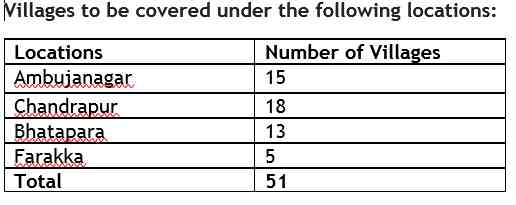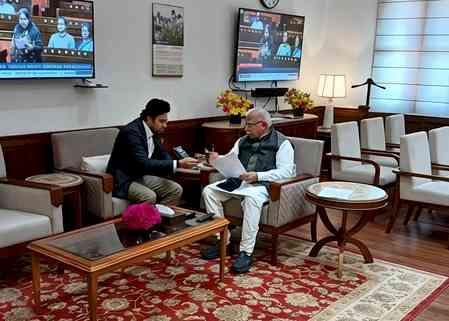LifeFirst partnered with Ambuja Cement Foundation to establish tobacco cessation program for pregnant women
In India, many pregnant women continue tobacco use even during pregnancy, and some who quit during pregnancy relapse to tobacco during post-partum period

Mumbai, January 27, 2022: In India, many pregnant women continue tobacco use even during pregnancy, and some who quit during pregnancy relapse to tobacco during post-partum period. As per the National Family Health Survey (NFHS), the prevalence of tobacco consumption among women was 6.8% (urban-4.4%, rural-8.1%) and about 9.5% of all pregnant women consumed tobacco (smokeless tobacco-8.5%, smoking-1.0%).
Tobacco cessation is imperative to safeguard the health of pregnant women and this is possible by imparting the knowledge of the harmful effect of tobacco on mother and child. To do that, LifeFirst tobacco cessation program is partnering with Ambuja Cement Foundation (ACF) for implementing a tobacco cessation service that will be delivered through Sakhis (community health workers trained by ACF for providing maternal and child health services in remote villages) within their antenatal care work. LifeFirst is a tobacco treatment initiative launched by NGO Narotam Sekhsaria Foundation to catalyze, build capacity for, and establish a high-quality, proven tobacco treatment service for people from all social strata.
LifeFirst, after successfully implementing a similar programme in urban Maharashtra, is collaborating with ACF to implement this in rural communities under maternal and child health programs in 4 geographical locations within the respective states of India i.e. Farakka in West Bengal, Ambujanagar in Gujarat, Chandrapur in Maharashtra, and Bhatapara in Chhattisgarh covering 51 villages.
Talking about the program, Dr. Himanshu A. Gupte, General Manager, Narotam Sekhsaria Foundation said, “LifeFirst team will train the ‘Sakhis’ at these 4 locations for screening tobacco users and will also collect data for tobacco use, will give brief advice along with brief cessation intervention with follow-ups. Information, Education, and Communication (IEC) material will be developed and tailored as per the need of the intervention.”
In this program, pregnant women who are tobacco users and are in their first trimester will be included. A baseline survey will be conducted with the consent of the pregnant women to identify current tobacco users even if any product was used once during the last 30 days. All of them will be provided with brief advice on the harmful effects of tobacco use during pregnancy. Dr. Gupte further added, “The pregnant women registered for Antenatal Care Services within the Maternal and Child Program of ACF will be receiving the LifeFirst service through the Sakhis trained in brief advice, tobacco cessation counseling techniques, and other related skills required to execute the cessation intervention.”
Maternal and child health will be emphasized while providing brief advice. Pregnant women who give their consent will only receive cessation service; the rest will be provided brief advice on the harmful impact of tobacco. Cessation service will include regular individual follow-up and tailored advice for quitting tobacco use including alternatives, coping mechanisms, refusal skills, etc. Narotam Sekhsaria Foundation has conducted a baseline situational analysis in the 4 sites. Training to carry out activity will be initiated next month followed by the roll-out of the project.



 cityairnews
cityairnews 










